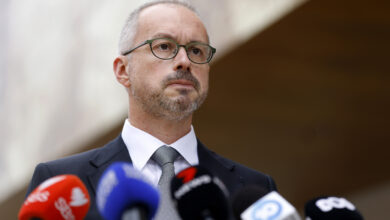New analysis shows early pandemic super scheme will leave taxpayers $85 billion worse off

Millions of Australians who withdrew their super savings during Covid-19 will be left dramatically worse off in their retirement, with taxpayers potentially facing a $85bn bill over the next 60 years to support poorer retirees.
The Morrison-era early release of super scheme was rolled out during the height of the pandemic and allowed people to withdraw up to $20,000 of their retirement funds with limited restrictions.
New modelling from the not-for-profit peak body Super Members Council has revealed that 30-year-olds who opted to take out the full amount from their super are now set to retire with about $93,600 less in super.
The council’s chief Misha Schubert said taxpayers will pay for the financial consequences of the scheme for "decades" to come.
"In the early stages of the Covid-19 pandemic, before government assistance kicked in with JobKeeper, many Australians were encouraged to sacrifice their retirement savings to support themselves," Ms Schubert said.
"Tragically, that will now leave many people significantly poorer in retirement.
"Those withdrawals will also cost the next generation of taxpayers in a case of 'fiscal long-Covid'."
Of the 725,000 Australians who withdrew money from their super accounts under the scheme, about 45 per cent were aged 25 and under and 70 per cent were aged 30 and under.
The analysis forecasts taxpayers will fork out between $75bn and $85bn over the next 60 years, through a combination of higher pension costs and smaller superannuation tax collections.
Analysis showed that today’s 20-year-olds are projected to pay about $3,000 more tax to cover the higher pension bill.
"These are the devastating consequences of schemes that break super’s preservation rules," Ms Shubert said.
"People are left with far less money at retirement, and the next generation – our children and grandchildren – will have to pay higher taxes to pick up the bill for higher pension costs."
When the scheme was first rolled out in 2019, then-treasurer Josh Frydenberg sold the policy as "the people’s money" and said it was introduced at "the time they need it most".
Email: [email protected]





